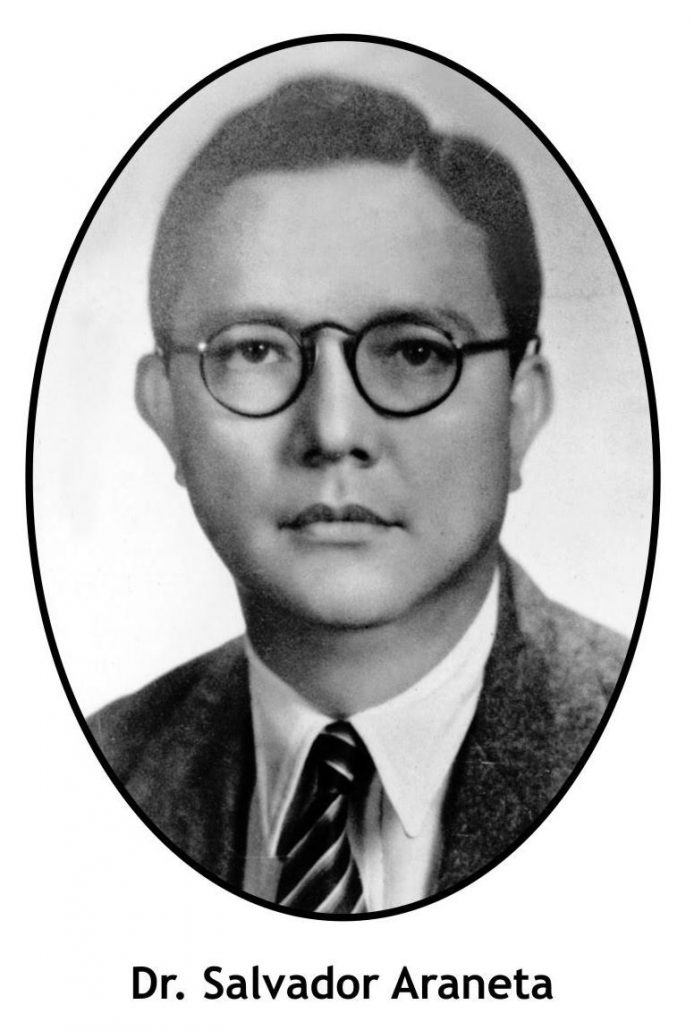 FOR DR. Salvador Araneta, capitalism was definitely an instrument of economic growth. Again and again, he preached that the five essentials to economic growth were:
FOR DR. Salvador Araneta, capitalism was definitely an instrument of economic growth. Again and again, he preached that the five essentials to economic growth were:
1) Increased savings and investments
2) Liberal credit facilities
3) Tariff protection and other incentives to investment and production
4) Substantial profits to investors which would require slowing down on wage increase; and
5) Social reforms to bring about equal opportunities and participation of all in the economic development of the nation
His proposals on group savings, which he called “seed money,” would create new property to be owned not by those who already have, but to be created and owned by those who did not yet have any property of their own.
After all the above explanatory notes on Araneta, it still does not describe the man and his myriad contributions to the country. He was, after all, not just theory and abstract policies. He demonstrated what the Filipino can do with limited resources and without any protection from the government but armed with ingenuity, resourcefulness, persistence, and integrity.
Moreover, one cannot write about Araneta without tracing the economic history of the country because he was an active participant contributing sound ideas and arguments for a truly democratic and independent government.
The imprints of his journey in public service can still be seen today. As Economic Coordinator, he was a staunch advocate of import control on non¬essential commodities.
During his term, many products were given protection like processed meats, but it was in the importation of textbooks where he met the greatest opposition by no less than the US President Harry S. Truman, who asked President Quirino, during the latter’s visit to the United States, to delay the implementation of the ban on imported textbooks.
With the ban in place, the printing industry flourished, and teachers became writers, and researchers were employed. The textbooks Dick and Jane became Pepe and Pilar.
The pan de sal we eat at breakfast or merienda makes use of locally milled flour. Araneta was the first to establish a flour mill in the Philippines. Soon after, there were several mills competing with the Republic Flour Mills (RFM).
But for Araneta, that was another achievement. He was giving more job opportunities to others and they could now flood the market instead of imported flour flooding the country. There were several other challenges he had to overcome, because in order to get dollar allocations for wheat and the machineries required then, there were controls on foreign exchange and import control. These were issues Araneta advocated.
When we gas up at the tank, think Salvador Araneta who challenged the big oil companies to do their refining in the country, or else the government would put up their own plant. First came Caltex. Stanvac had to defer their plans as Caltex had set foot in the refinery business.
Araneta proposed a regional minimum wage as an incentive to move industry and business out of Manila as well as to promote countryside development, which would result in decongesting Manila. He proposed a regional minimum wage to correspond to the cost of living in the province. This would produce real wages. It was not how big the pay was but what you could buy from your pay check. The regional minimum wage is still in effect.
The maternity benefits women enjoy today were born out of one of the first law cases Araneta accepted and won. It was to give a female employee maternity benefits. This was way back in the early 1920s when he started his law career.
Another reminder of Araneta’s relevance today is his contribution to our educational system. His university, the Gregorio Araneta University Foundation, was the first of its kind under Republic Act 6055.
Gregorio Araneta University Foundation started as Araneta Institute of Agriculture right after the war and most of the students then were war veterans. He co¬founded FEATI University. He also had an involvement in aviation.
Araneta and the Lopez family embarked on a business venture and started Ilo-Ilo Negros Air Express or INAEC. After the war, it became FEATI Airlines (Far Eastern Air Transport Incorporated) which flew both domestic and international flights. FEATI Airlines was later sold to and became Philippine Airlines. Both Araneta and Eugenio Lopez went around the country looking for the best locations for airports. Today, these airports continue to serve the country.
Araneta was able to actualize his many novel and daring ideas, and we could go on and fill up this sketch with more lines to paint a larger picture of the man. Sufficient to say that Araneta has left us enumerable gifts, some we can see some we cannot see and some we hope to see.
A sketch of his life should include this campaign for the industrialization of the country. He emphasized that industrialization must be rapid and self-generating. He said that his could be achieved by establishing basic key industries, namely the steel industry, ship building, the development of water resources, chemical, and fermentation industries as well as the machine and tool industries.
Germany and Japan recovered after the World War II in record time because their reconstruction was self-generated and because they started building their basic industries. He also explained that indus¬trialization can become to a great extent, a self-generating process of cumulative growth for as long as investments are concentrated in the production of capital goods rather than consumer goods as it feeds back the incremental productivity into the process of capital formation. (To be continued/PN)





